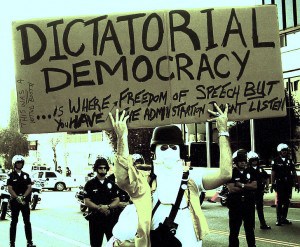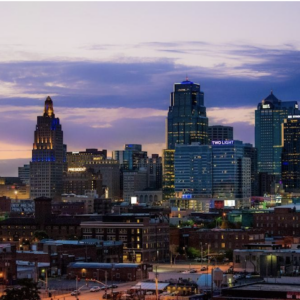
By: Amanda Froelich,
A recent study by Princeton’s researcher’s Martin Gilens and Benjamin I. Page have finally put some scientific backing behind the popular argument that the United States isn’t really a democracy anymore. And what they’ve found is that America is basically an oligarchy.
An oligarchy is a form of power structure in which power effectively rests with a small number of people. This means that those individuals a part of the power play, whom are called oligarchs, are the rich, the well-connected, and the politically powerful, as well as particularly well placed individuals in institutions like banking, finance, or the military.
Gilens and Page began by compiling data from roughly 1,800 different policy initiatives in the years between 1981 and 2002. They then compared those policy changes with the expressed opinion of the United States public. By comparing the preferences of the average American at the 50th percentile of income to what those Americans at the 90th percentile preferred, as well as taking into account the opinions of major lobbying or business groups, the researchers found out that the government followed the directives set forth by the latter two more often.
This is shocking. Gilens and Page wrote, “the preferences of the average American appear to have only a miniscule, near-zero, statistically non-significant impact upon public policy.” Basically, their statistics state that your opinion really doesn’t matter.
Perhaps this explains why mandatory checks on gun sales supported by 83% to 91% of Americans aren’t in place, or why Congress has taken no action on greenhouse gas emissions even when such legislation is supported by the vast majority of citizens.
This may come as a shock, but activists have been speaking out about this for some time now. OligarchyUSA even has a whole website devoted to this claim, offering more insight into what it all means.
But according to the published study, this problem has been escalating for four decades. Economists Thomas Piketty and Emmanuel Saez constructed income statistics based on the IRS dating back to 1913. There are limits to their data sets, but the broad determination was that the gap between the wealthy and the rest of us is much bigger than one might think.
The following graphs from the Center on Budget and Policy Priorities offer visualization:
The two economists also calculated that as of September 2013, the top 1% of earners had captured 95% of all income gains since the Great Recession ended. The remaining 99% saw a net drop of 12% to their income. In conclusion, not only is the oligarchy allowing the rich to become richer, it’s fueling policy that is making everyone else poorer. Shocking, right?
Just what kind of Oligarchy is it? Gawker’s Hamilton Nolan explains: there are two theories of governance: economic elite domination and biased pluralism. The first is simple to understand, it states that the ultra-wealthy wield all the power in a given system, though it is argued that this system still allows elites in corporations and the government to become powerful as well. In this situation, power does not necessarily derive from wealth, but those that hold the power almost invariably come from upper class.
Biased pluralism, however, argues that the entire system is a mess and interest groups ruled by elites are fighting for dominance of the political process. It’s also believed that because of their vast wealth of resources, interest groups of large business tend to dominate a lot of the discourse.
Either way, the result is the same: Big corporations, the ultra-wealthy and special interests with a lot of money and power essentially make all of the decisions. Citizens wield little to no political power, and in result, America tends more towards either of these than an actual “democracy”. A true democracy would involve a system where under such policy (example: majoritan electoral democracy or majoritarian pluralism) chosen to be pursued by the government, opinions of the governed would be reflected.
According to Policy Mic’s shared data, it’s pretty clear America has been sliding into an oligarchy for decades, mirrored in both the substantive effect on policy, and in the distribution of wealth throughout the United States. But cases such as these may just indicate the process is accelerating.
Gilens and Page wrote, “Perhaps economic elites and interest group leaders enjoy greater policy expertise than the average citizen does. Perhaps they know better which policies will benefit everyone, and perhaps they seek the common good, rather than selfish ends, when deciding which policies to support.
But we tend to doubt it.”
Sources:




